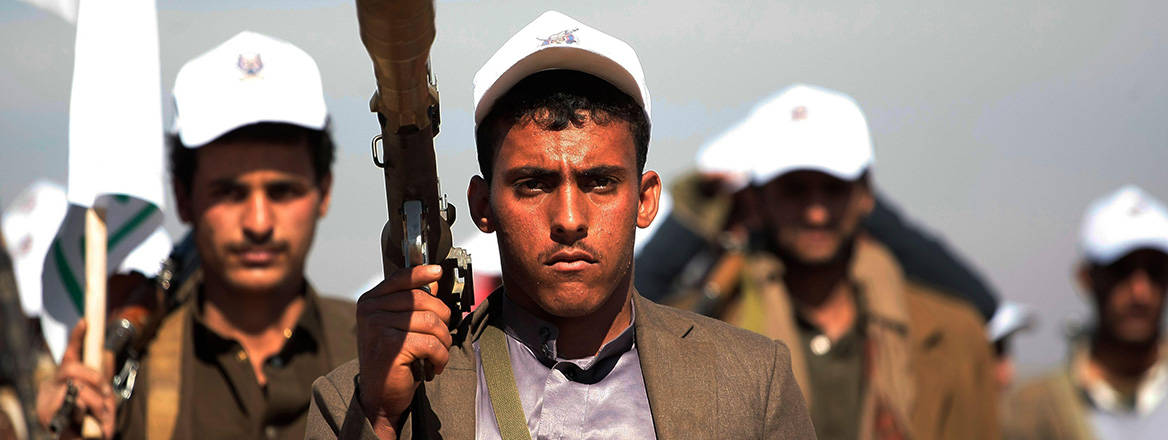We Need to Move Beyond Bombs and Bullets to Counter Terrorism
Tech platforms are still struggling to curb the spread of terrorist content. Governments must not only support them but also hold them accountable through stronger enforcement and enhanced intelligence capabilities.
As the world’s attention remains fixed on the intensifying conflicts with terrorist groups across the Middle East, a crucial and often overlooked battleground remains online. While Israel grapples with its military operations against Hamas in Gaza and the US Navy and the UK’s Royal Navy face intense combat with Yemen's Houthis in the Red Sea, both groups remain persistent with their extraordinary ability to exploit the online environment.
Take the Houthis as a case study. The group has become an added menace to global security with its attacks on shipping as well as its UAV attacks on Israel. The Houthis have been designated as a terrorist organisation by both the US and Australia.
The movement is not just a militia with boots on the ground and missiles in the air – it has become a digitally savvy insurgent group. With millions of followers across various social media platforms, the Houthis are exploiting the internet to amplify their reach, recruit followers and conduct illicit activities.
Recent media reports reveal that arms are being openly traded online from the Houthi-controlled capital of Sana’a. This alarming development was also confirmed last year by the UN Panel of Experts on Yemen.
Even after the Houthis’ attacks on global shipping vessels and hostage-taking, their posts identified in the expert report remained online for well over nine months. Despite being designated as a terrorist organisation and facing subsequent sanctions, the group continues to operate with alarming impunity online. The Houthis have long relied on the internet as their most important strategic communications tool alongside their TV channel, and now it seems likely that they are utilising the former as a dual-use marketplace to trade arms.
It is well established, but often overlooked, that the internet has become a critical enabler of modern terrorism due to its potency as a strategic communications tool. The use of online spaces by groups such as the Houthis, Hamas and Hezbollah is a stark reminder that we cannot only rely on kinetic counterterrorism responses. In some cases, bombing terrorists only serves to bolster their own propaganda efforts. The very least tech platforms can do is uphold the law by ensuring that they do not promote terrorist content and allow terrorists to operate freely in the information environment.
In the case of the Houthis' use of the internet, the media and UN experts have uncovered hundreds of Arabic-language social media posts that violate guidelines, if not actual laws. Some of these posts have remained online for years. In the worst case, this could indicate a reluctance on the part of tech platforms to act against such content. At best, it may reflect a lack of language capabilities among platform moderators and limited deployment of AI.
The consequences of some platforms doing so little to counter the terrorist use of their services are not only apparent in the Middle East, but also in other flashpoints where online activity has had tangible repercussions. The recent UK riots laid bare our Hobbesian online environment where the dangerous intersection of misinformation, disinformation and exploitation by violent extremists has threatened the UK’s democracy. While those inciting violence must be held accountable, platforms must also consider their duty of care to users and public safety.
In the 21st century, wars are fought not just with bombs and bullets, but with online efforts to push back against terrorist strategic communications
Although we have the legal tools to address offences both online and offline, enforcement at the required scale is lacking. This demonstrates the pressing need for more robust investigative capabilities on the part of democratic governments. A coherent strategy is needed to tackle disinformation and online extremism, including the creation of a National Centre for Open-Source Intelligence. This centre would coordinate expertise and technology to support law enforcement and regulators, addressing the current fragmentation of open-source intelligence efforts across government.
Such an initiative would require resources and funding. It is only natural that social media platforms and messaging apps should be required to contribute to the costs of policing the digital space from which they profit. The ‘polluter pays’ principle underpins the Financial Conduct Authority’s levy on banks; why should social media be different?
Terrorist and violent extremists are still one step ahead of us in their online exploitation. We must disrupt their communications, dismantle their digital networks, and prevent them from using the internet as a tool for terror. This requires cooperation between governments, tech companies and international bodies. It requires a recognition that in the 21st century, wars are fought not just with bombs and bullets, but with online efforts to push back against terrorist strategic communications.
The views expressed in this Commentary are the author’s, and do not represent those of RUSI or any other institution.
Have an idea for a Commentary you’d like to write for us? Send a short pitch to commentaries@rusi.org and we’ll get back to you if it fits into our research interests. Full guidelines for contributors can be found here.
WRITTEN BY
Adam Hadley CBE
RUSI Senior Associate Fellow, Terrorism and Conflict
- Jim McLeanMedia Relations Manager+44 (0)7917 373 069JimMc@rusi.org



